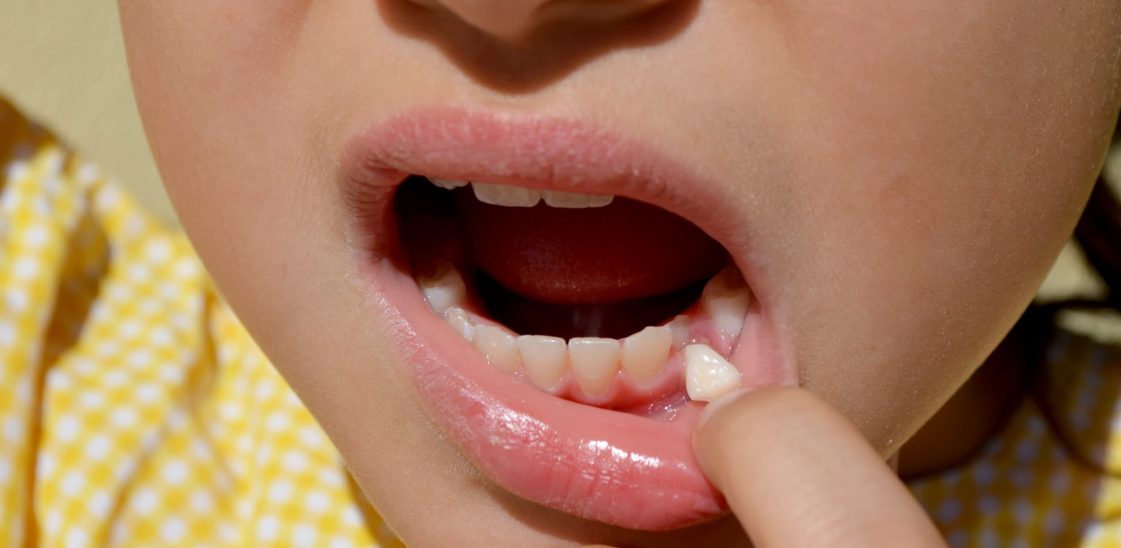
Why is my tooth wobbly?
If you or your child has a wobbly tooth, it can be a concerning experience, especially if you’re not sure what caused it. In this article, we explore various potential reasons behind a loose tooth to help you understand more about your dental hygiene.
Keep reading to learn more.
Why does my tooth feel loose?
Identifying the reason why a tooth has become loose can help dentists to decide what treatment, if any, is appropriate. There are some circumstances in which a tooth becoming loose is a natural and expected part of healthy development. In other situations, you may need medical or dental attention in order to rectify underlying issues and check for additional damage.
Below, we take a look at some of the most common causes of loose teeth in children and adults.
The replacement of baby teeth
Babies typically develop their first teeth at around six months of age, although it can happen earlier or later. These teeth are known as milk teeth, and usually all are present by the time the child is three years old.[1] However, these aren’t the teeth they’ll have for the rest of their lives; in time, they will be replaced by adult teeth.
When it’s time for an adult tooth to emerge, it will begin to push up on the milk tooth above it. This will cause the milk tooth to become wobbly and, eventually, fall out to make room for the new tooth. A child will begin losing their milk teeth at around six years old, and generally the last tooth will have fallen out by the age of 12.[2]
Children losing their milk teeth isn’t usually something you need to worry about. Just make sure to keep a healthy oral hygiene routine and visit their dentist regularly to ensure their teeth are as healthy as can be.[3]
Injury
Another thing that can cause teeth to become loose or even be knocked out is a head injury. If this happens to you or your child, you should seek an appointment with your dentist as soon as possible. If the tooth has been knocked out, find it and put it in a small container of milk. Alternatively you could use a purpose-built tooth saver pot like the one included in Dentek’s Dental First Aid Kit, which also contains temporary filling material and an applicator kit for other dental emergencies. Then you should take the tooth with you to the dentist, who can explore whether or not it’s possible to put it back in. If it’s a child’s tooth you’re trying to save, then you should seek advice from a healthcare professional before using a dental first aid kit.[4]
Injuries that can cause a tooth to be dislodged can also impact your wider physical health. It’s important to get medical attention as soon as possible to check for damage such as a concussion in case you need treatment.
Gum disease
If you’re not a child and you haven’t had any injuries that could cause a tooth to be dislodged, then your loose tooth may be caused by a gum infection (also known as gum disease). In its early stages, gum disease is a very common condition, but it’s still worth speaking to your dentist if you think you may have it. When it gets worse without treatment, gum disease can lead to more serious dental problems, including the loss of teeth.
At the stage where your teeth feel loose or are coming out, gum disease is very serious. If this affects you, you should get an urgent dentist appointment as soon as possible.[5]
Loose fillings, caps or crowns
Teeth aren’t the only things that can come loose – fillings, caps or crowns can be dislodged and even come out too. If this happens to you, you can use a temporary solution such as Dentek’s Temparin Max Repair Kit to refill your tooth or reattach a loose cap or crown until you can see a dentist for a more permanent repair.
Resources:
[1] – https://www.nhs.uk/conditions/baby/babys-development/teething/baby-teething-symptoms/
[2] – https://www.sheffieldchildrens.nhs.uk/patients-and-parents/looking-after-your-teeth/
[3] – https://www.nhs.uk/live-well/healthy-teeth-and-gums/taking-care-of-childrens-teeth/
[4] – https://www.nhs.uk/conditions/knocked-out-tooth/
[5] – https://www.nhs.uk/conditions/gum-disease/




